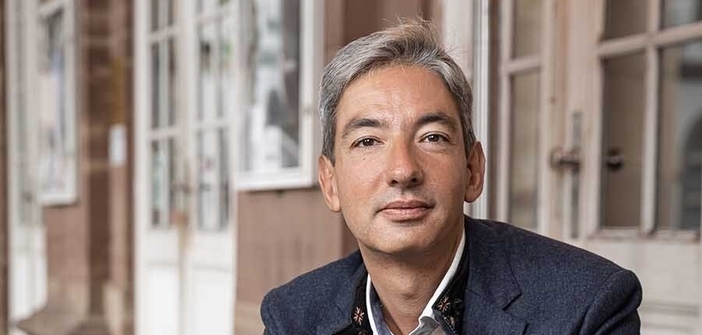Now firmly established in his role as director of the Nice opera, Bertrand Rossi is trying by all means to keep the cultural world as lively as possible despite an uncertain future. Interview with an optimistic and dedicated man.
While cinemas, museums, and operas remain closed due to Covid-19, Bertrand Rossi, a native of Nice and director of the opera in his hometown, wants to continue pushing forward. He intends to impart this perspective to the cultural world around him.
Do you understand the temporary closure of cultural venues while some shopping centers remain open and very crowded?
I don’t like the current controversy between the “for and against” regarding whether culture is essential or not. I prefer to unite rather than divide. And then, who could think that Culture is not an essential art? This health crisis is neither local nor national but global. Almost all cultural venues are closed around the world, except for some countries that manage to cover a few venues like in Spain.
However, the city of Nice is working on establishing a very strict health protocol to prepare for the reopening of our venues. The mayor of the city, Christian Estrosi, is in contact with the Minister of Culture to work on this protocol.
What do your workdays look like at the moment?
With artists being confined, away from our house during this period and also administrative staff teleworking, our habits and communication modes have slowed down. More than usual, I spend a lot of time maintaining this connection as I do with the public but also with the 320 staff members of the opera. I maintain the connection through written messages, I support them, keep them informed about the situation, we share a lot about the future and sanitary conditions. We organized the recording of “Akhaten”, the “New Year’s Eve Concert”, and the “Don Quixote Ballet”.
For its filming, it was necessary to adapt “La Dame Blanche” with a lighter semi-staged version rather than bringing the set from Paris, as it is a co-production with the Opéra Comique, and we are indeed preparing future events to ensure the connection with the public during this still uncertain period.
In your opinion, is the opera in more danger than certain activities like cinema or museums?
Cinema and museums collaborate with the opera, I would say we are in the same boat. However, it is true that it is easier to open a cinema and a museum than an opera under the current situation. It is a real issue that needs to be addressed with our partners since an opera performance requires many more people, making opera more complicated. We have other sanitary challenges with maintaining distancing between artists on stage, singers projecting, and the number of orchestra musicians in the pit, for example, but we have alternative solutions ready.
How are the artists adapting to the situation? Are they receiving financial support?
Christian Estrosi and the city of Nice have strongly supported the artists during this period. They found themselves in a precarious situation where most freelancers, conductors, artists, and directors had all their contracts canceled. Thus, the city decided not to indiscriminately use the force majeure clause, which would have allowed us not to honor our contracts.
We were aware that this would have added a social crisis to the health crisis. The opera artists found in this delicate situation received compensations. We must preserve the talent of our workforce, constituted by these artists. We will do nothing without the artists, and we have an interest in protecting them despite the situation.
What future for culture do you foresee in Nice after this crisis? Are you optimistic about what’s next? What are your reasons to believe?
Despite this closure, the opera artists responded to my call and that of the City to maintain the connection with the public. Thus, from their homes, they created video clips that we published daily on social networks, and particularly on the “cultivez-vous.nice.fr” platform, created especially during the lockdown.
It was a first in Europe, resulting in 850,000 views on social networks and 2 million viewers for the TF1 news where the Nice Philharmonic Orchestra was highlighted. There was a genuine engagement from the opera artists, who truly demonstrated resilience. In my opinion, there was a real awareness among all our artists. With such a committed team behind us, I am optimistic for the future, and I would even say I am optimistic for the present.
When was the last performance at the opera? Did you suspect that it would be the last for a long period? When do you hope to see artists back on stage?
The last performance was “The Queen of Spades”, a production directed by Olivier Py. The lyric curtain fell on March 5. I remember we closed the theater during rehearsals of Phaéton, and it was heartbreaking for me to announce to the artists that the production had to stop just as we were in the first rehearsal on stage. We can see how much we have evolved since then, because at that time, we did not consider the idea of recording, whereas today, digital is at the center of the artistic project.
It’s a pleasure for us to do our job nonetheless and to be able to accompany the artists to the completion of their projects. Concerning artists on stage with an audience in the hall, I am convinced that the government will pay attention to the health protocol we are putting in place and to the seriousness of opera houses in this matter and their know-how as well.
See many performances here: [https://cultivez-vous.nice.fr/]


